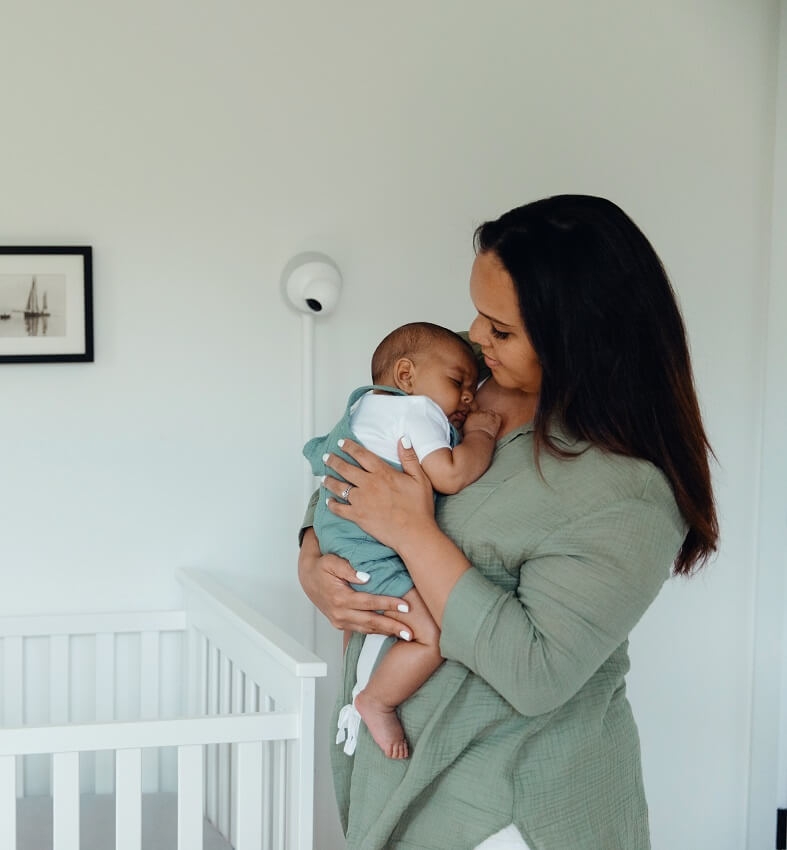Celebrating Black Breastfeeding Awareness Week
Celebrating Black Breastfeeding Week with Tayo Mbande, co-founder of Chicago Birthworks Collective. Recent CDC data highlights barriers for Black women: early work return, inadequate healthcare education, and lack of professional support.

Tayo Mbande

In celebration of Black Breastfeeding Week, our guest blogger Tayo Mbande, co-founder of Chicago Birthworks Collective, shares about the annual event:
The most recent CDC data on breastfeeding disparities by race shows that Black women have continued to rank with the lowest breastfeeding initiation rates. The research identified specific barriers often experienced by Black women:
Needing to return to work earlier
Poor breastfeeding education from healthcare providers
Lack of professional breastfeeding support
Despite the increase in breastfeeding supportive initiatives and programs nationally, research also shows that black communities are more likely to not see a positive impact on breastfeeding rates due to the lack of these specific supportive practices in hospitals like early initiation of breastfeeding, limited use of supplements like formula, rooming-in, limited use of pacifiers, and post-discharge support.
After considering these barriers, one may begin to see a need for a specific, targeted initiative towards increasing Black women’s breastfeeding rates. In 2012, 3 Black mothers saw the need and chose to make a move! Kimberly Seals-Allers, an award-winning journalist and author, Kiddada Green, the founding executive director of the Black Mothers Breastfeeding Association, and Anayah Sangodele-Ayoka, writer, birth-worker, and breastfeeding advocate, came together and established the last week of August as Black Breastfeeding Week.
Black Breastfeeding Week has consistently been a celebration of more than just a choice of infant feeding, but a gathering of women united through all the colorful parts of motherhood; Black motherhood. Every year during this week, thousands of women gather to not only raise awareness of Black breastfeeding rates, but to strategize on how to create better health outcomes for Black women and Black infants beyond breastfeeding.
For many women, the first moments of finding out that a small human has begun growing inside of them, are riddled with questions. Questions about how large or how small the baby will be, when the baby will arrive, or possibly where or how the baby will be born. All questions with a wide range of answers.
Tayo explains that for many Black women, the knowledge of a pregnancy is accompanied by a parade of unique thoughts, and concerns.
Will I be able to provide for my child while being a good mom?
Will my child be born into a world that is riddled with the same types of racism myself and generations before me have experienced?
Will I find a provider who respects my specific experiences as a (insert age, demographic, sexual orientation adjective) black woman?
Will both my child and I survive childbirth?
For the average Black woman, there is one question in particular that may bring on a complex wave of cultural-historical and even sexual challenges. That is the question of breastfeeding. Cue dramatic curtain drop.
When a Black woman considers the way she will choose to feed her baby, these questions may ring in her head:
Is this pregnancy valuable enough for me to make a what could be a year long investment with my body, even after birth?
Will my job accommodate my choice to breastfeed?
What types of ideas will people think about me as a (insert age, demographic, sexual orientation adjective) breastfeeding Black woman?
How will I afford to breastfeed if I have to take my baby to a childcare provider and I do not have a pump?
What if my doctor doesn’t support breastfeeding?

Though these questions are common to most women, they may come with an extra layer of complexity for Black women given the statistics that show their place as consistently last or secondary in many social and economic rankings.
Communities across the nation gather this week to host summits, conferences and roundtables to discuss, to embrace and to unite around a central part of Black motherhood; breastfeeding. The week is spent honoring Black motherhood, examining the complexities Black mothers' experience surrounding breastfeeding and creating a strong representation in the public eye to normalize and increase Black breastfeeding.
This year Black Breastfeeding Week will take place August 25th-31st carrying the theme "10 Years, A New Foundation." If you are currently breastfeeding, have breastfed, or are in support of Black women breastfeeding, be sure to find events in your community to support, raise awareness via social media using the hashtag #BlackBreastfeedingWeek.
*Nanobébé is thrilled to welcome guest bloggers. The views and opinions represented in these blog posts belong solely to the guest blogger and are not the legal responsibility of the company. The owner of this blog makes no representations as to the accuracy or completeness of the information provided by the guest blogger and will not be held liable for any errors or omissions of information nor for the availability of this information.

Tayo Mbande
Share this post




